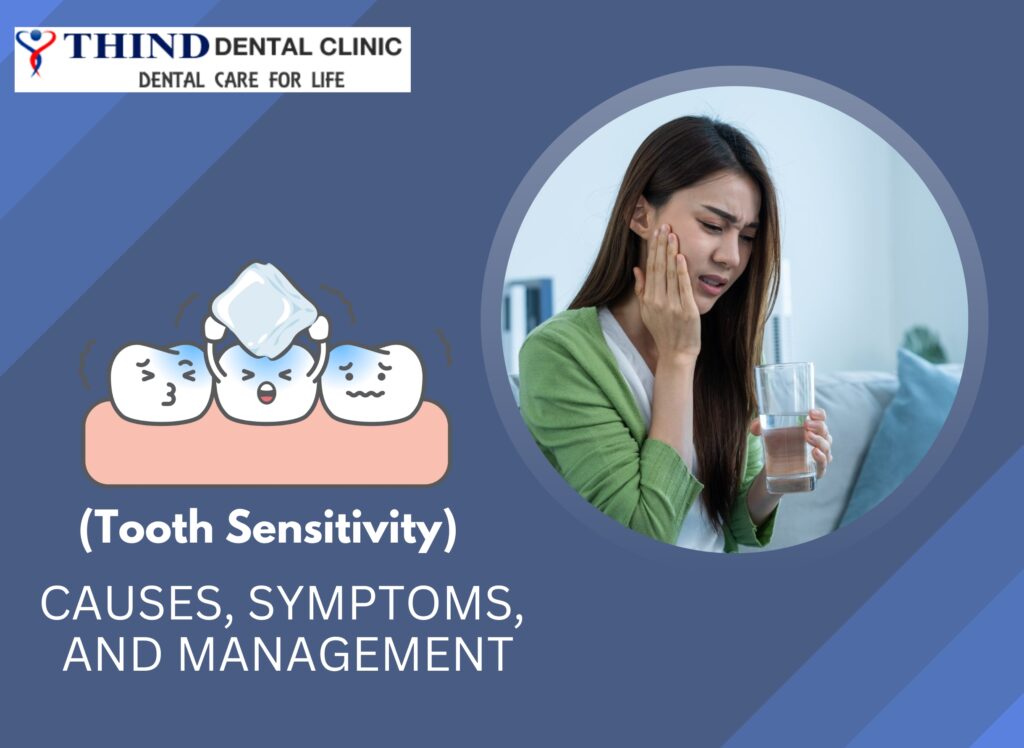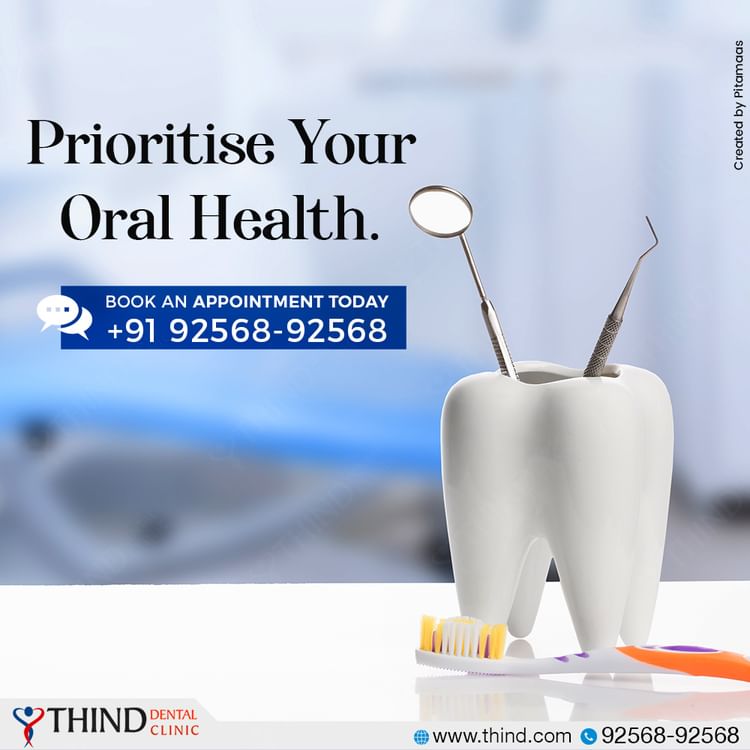Tooth sensitivity, often described as a sudden, sharp pain when teeth are exposed to hot, cold, sweet, or acidic stimuli, can be a real discomfort. This dental condition affects many people and can significantly impact one’s quality of life. However, understanding the causes, recognizing the symptoms, and learning how to manage tooth sensitivity can help you alleviate this common issue. In this article, we’ll explore the reasons behind tooth sensitivity, its symptoms, and effective management techniques.
Causes of Tooth Sensitivity
Tooth sensitivity occurs when the protective layer of enamel on your teeth is compromised, exposing the underlying dentin, which contains tiny tubules leading to the tooth’s nerve. There are several reasons why this enamel can be worn down:
1. Abrasive Brushing: Overenthusiastic brushing with a hard-bristle toothbrush is a common culprit. While maintaining good oral hygiene is crucial, it’s equally essential to use a soft or medium-bristle toothbrush and adopt a gentle brushing technique. Vigorous brushing, especially over time, can erode enamel, making the dentin more vulnerable to external stimuli.
2. Acidic Foods and Drinks: Our dietary choices can significantly impact enamel health. Consuming a diet rich in acidic foods and beverages like citrus fruits, carbonated sodas, and vinegar can weaken enamel. These acidic compounds can erode the enamel’s mineral content, leading to thinner and more porous enamel.
3. Gum Recession: Receding gums, often attributed to gum disease or improper oral care, can be another trigger of tooth sensitivity. As the gums recede, they expose the tooth’s sensitive root surface, devoid of the protective enamel covering. This exposed root surface is more susceptible to sensitivity, as it contains numerous nerve endings.
4. Tooth Grinding (Bruxism): Clenching or grinding your teeth, a condition known as bruxism, can gradually wear down enamel. Bruxism often occurs during sleep, making individuals unaware of the damage they are causing. Over time, this persistent grinding can lead to a significant reduction in enamel thickness.
5. Tooth Decay: The presence of cavities (dental caries) can be a direct cause of tooth sensitivity. Cavities form due to bacterial activity that produces acids capable of eroding the tooth’s hard enamel. If left untreated, these cavities can penetrate the enamel and reach the underlying dentin, causing sensitivity to temperature and pressure.
6. Tooth Whitening Products: While teeth whitening is a popular cosmetic dental procedure, some individuals may experience temporary sensitivity as a side effect. This is often due to the product’s active ingredients, which may temporarily irritate the tooth’s nerve endings.
7. Cracked Teeth: Cracks or fractures in the teeth, whether caused by accidents or biting into hard objects, can expose the dentin beneath the enamel. These fractures can create pathways for external stimuli to reach the tooth’s nerve, leading to sensitivity.
Symptoms of Tooth Sensitivity
The primary symptom of tooth sensitivity is sudden, sharp pain or discomfort when teeth are exposed to specific triggers. These can include:
1. Hot Foods and Drinks: Sipping a steaming cup of tea or coffee may cause an immediate and intense, albeit brief, painful sensation. The heat from these beverages can reach the nerve endings within the exposed dentin, leading to discomfort.
2. Cold Foods and Drinks: On the flip side, consuming ice cream, iced beverages, or even a refreshing glass of cold water can elicit a similar sharp and transient pain. The cold temperatures can trigger nerve responses in the tooth’s dentin.
3. Sweets: Sugary foods and drinks can also be a common cause of sensitivity. The presence of sugar can lead to a painful sensation, particularly if there are cavities or areas of exposed dentin in the affected tooth.
4. Acidic Foods: Foods with high acidity levels, such as tomatoes, citrus fruits (like oranges and lemons), and vinegar, can contribute to tooth sensitivity. The acid can erode enamel, making the dentin beneath more susceptible to sensations of discomfort.
5. Cold Air: Even inhaling cold air, especially during the winter months, can trigger tooth sensitivity. This sensation can be quite uncomfortable and is a result of the exposed dentin reacting to the temperature change.
6. Brushing or Flossing: Routine oral care, such as brushing and flossing, which are essential for maintaining oral hygiene, may become painful for individuals with tooth sensitivity. This can sometimes lead to inadequate oral care, so it’s important to address sensitivity issues promptly to maintain proper dental hygiene.
Management of Tooth Sensitivity
Managing tooth sensitivity involves various strategies to protect your enamel and reduce discomfort:
1. Choose a Soft-Bristle Toothbrush: Switching to a soft-bristle toothbrush and brushing gently can help protect your enamel.
2. Use Desensitizing Toothpaste: Specialized desensitizing toothpaste can help block the transmission of pain signals from the tooth surface to the nerve.
3. Fluoride Application: Dentists can apply fluoride varnishes or gels to strengthen the enamel and reduce sensitivity.
4. Avoid Acidic Foods and Drinks: Reducing your consumption of acidic items can help protect your enamel.
5. Mouthguards for Bruxism: If you grind your teeth, a mouthguard can prevent further enamel wear.
6. Dental Restorations: For severe cases, your dentist might recommend dental restorations to address underlying issues.
7. Gum Grafting: In cases of gum recession, a gum graft can protect exposed tooth roots.
8. Professional Dental Care: Regular dental check-ups are essential for maintaining oral health. Your dentist can identify and address sensitivity early on.
Conclusion
Tooth sensitivity can be bothersome, but with the right knowledge and dental care, it can be managed effectively. By understanding the causes, recognizing the symptoms, and practicing good oral hygiene, you can protect your enamel and reduce sensitivity, ultimately enjoying a pain-free, healthy smile.
If you’re experiencing tooth sensitivity, don’t hesitate to reach out to us at Thind Dental Clinic in Ludhiana. Our experienced team can provide the guidance and treatments needed to address your specific situation and improve your oral health.
For additional information or to arrange an appointment with us
You can contact us at +91-92568-92568
or visit us at:
THIND DENTAL CLINIC
11-12-13-14 H.I.G Market, Opposite Water Tank, Ludhiana, Punjab 141010.
Also Read:
Single Sitting Procedure: Painless and Affordable Dental Care at Thind Dental Clinic
Dental Care for Children: Expert Tips for Parents on Caring for Your Child’s Teeth
The Importance and Benefits of Regular Dental Checkups: Ensuring Optimal Oral Health
Professional Dental Implants: Restoring Smiles with Precision and Care at Thind Dental Clinic in Ludhiana

 Timings
Timings


